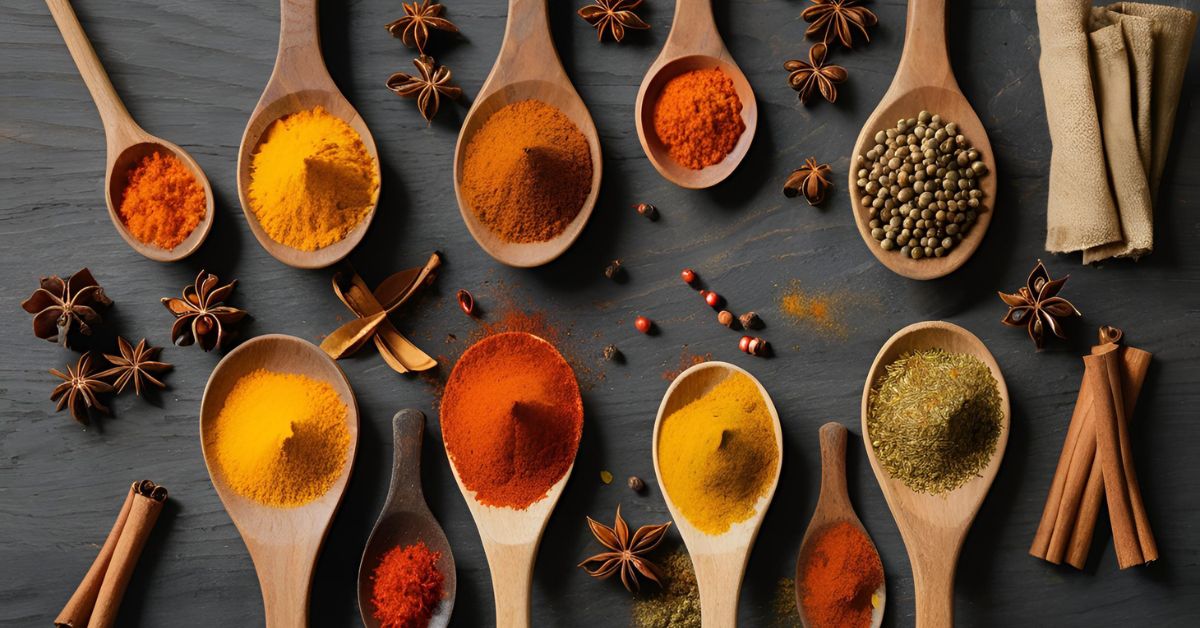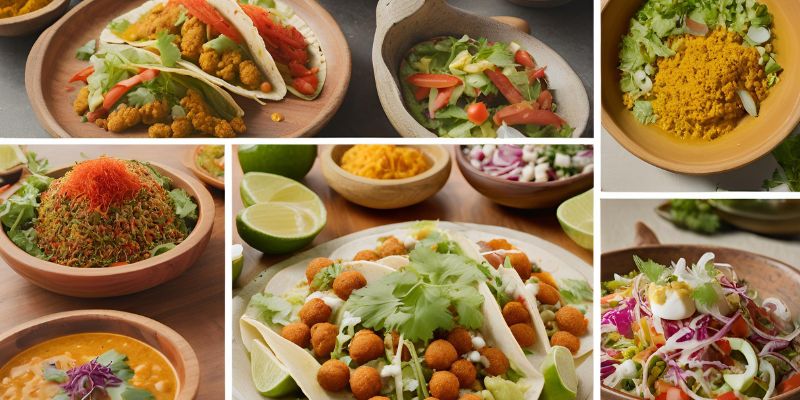What’s the secret ingredient that makes home-cooked meals stand out from the rest? Spices. A well-stocked spice pantry isn’t just about flavor; it’s about versatility, creativity, and even saving time in the kitchen. Studies show that using just the right blend of Essential Spices For Pantry can reduce the need for added salt and sugar, transforming dishes into something healthier and more flavorful. Imagine whipping up a tangy tomato soup, a warm curry, or crispy sheet-pan veggies—all without scrambling for missing ingredients!
The key lies in gathering the essentials. With the right foundation, like the top 10 essential spices for pantry, you’ll be ready to tackle recipes across cuisines without the dreaded “I don’t have this spice” moment. Whether you’re a seasoned cook or a curious beginner, these pantry must-haves will simplify your cooking while elevating the taste of every dish you make. Let’s dig in and discover the spices that should always have a place in your kitchen!
What Makes a Spice “Essential”?
Understanding the Role of Essential Spices For Pantry
Not all spices are created equal. Some may only be used for specific dishes a few times a year, like nutmeg for holiday baking. But when we talk about “essential spices,” we’re referring to versatile, multipurpose seasonings that can enhance a wide range of recipes. They’re the workhorses of your pantry—the ones you’ll reach for over and over again.
These spices are essential because they create familiar flavor foundations across different cuisines. Think fragrant cumin for hearty stews, or sharp black pepper to add a quick punch of heat! Plus, stocking high-quality versions of these spices not only improves taste but also ensures you’re getting the most shelf life and nutritional value from each jar.
Essential Spices For Pantry
1. Salt
It may sound obvious, but no spice pantry is complete without salt. It’s the most fundamental seasoning in cooking because it enhances all other flavors. For versatility, keep a few types on hand—table salt for everyday use, kosher salt for rubs and brining, and flaky sea salt for finishing dishes like salads or roasted vegetables.
Pro tip? Always salt as you cook, not just at the end, to build layers of flavor.
2. Pepper (Black or White)
Black pepper is a universal ingredient, found in everything from soups to marinades. Whole peppercorns, freshly ground in a mill, will always deliver stronger flavor than pre-ground options. Want something milder? White pepper is fantastic for cream-based soups and sauces where you don’t want visible specks.
Store your pepper in an airtight container to keep it fresh and flavorful for longer.
3. Paprika
Paprika is a powerhouse spice that adds color, sweetness, and smoky depth to dishes. Whether you choose sweet paprika for a subtle touch or smoked paprika for a deeper, earthier profile, it’s a perfect addition to roasted meats, stews, or even sprinkled over deviled eggs.
It’s particularly valuable if you love Mediterranean, Spanish, or Hungarian cuisine.
4. Garlic Powder
Garlic powder should be a pantry staple, even if you usually have fresh garlic on hand. Why? It’s convenient, long-lasting, and blends beautifully into spice rubs, marinades, or even soups where fresh garlic might burn or lose flavor.
Pair garlic powder with salt, pepper, and paprika to create a quick and easy all-purpose seasoning for roasted vegetables or meats.
5. Onion Powder
Like garlic powder, onion powder delivers bold flavor without the mess of chopping fresh onions. It enhances everything from creamy dips to slow-cooked stews with its sweet, savory kick. It’s a behind-the-scenes flavor booster that makes ordinary dishes shine.
For best results, combine it with spices like chili powder or cumin to bring depth to your recipes.

6. Cumin
Cumin is one of the most recognizable spices in global cuisines, from Mexican tacos to Indian curries and Middle Eastern kebabs. Its warm, earthy flavor instantly adds complexity to dishes, whether you’re using ground cumin or whole seeds.
Toast whole cumin seeds briefly in a dry pan before grinding to unlock even more aroma and flavor.
7. Oregano
Oregano isn’t just for pizza. This herb is a must-have if you love Italian, Mediterranean, or Mexican dishes. Its bold, herbaceous flavor works particularly well in tomato-based sauces, salad dressings, and marinades.
Use it sparingly—dried oregano can be more potent than fresh, so a pinch goes a long way.
8. Cinnamon
Cinnamon brings a warm, sweet aroma to baked goods, but its uses go far beyond desserts. A pinch of cinnamon in savory stews or braised meats adds unexpected depth.
For baking, opt for cassia cinnamon. For a delicate, less intense flavor, try Ceylon cinnamon. Either way, make sure it’s in your pantry!
9. Turmeric
This vibrant golden spice isn’t just beautiful—it’s packed with antioxidants and anti-inflammatory properties. Turmeric is a staple in Indian and Southeast Asian cooking, but it’s also becoming a popular addition to smoothies, teas, and salad dressings.
Practice caution when using turmeric—it stains easily! Use a small spoon to measure it out, and wipe surfaces right away.
10. Chili Powder
Chili powder isn’t just for heat; it delivers a balance of spices like cayenne, cumin, and oregano in one easy mix. It’s excellent for spicing up chili con carne, tacos, or soups without adding overwhelming heat.
Start with a small amount and adjust to your spice tolerance to keep the dish balanced.
Discover why quality ingredients are the key to culinary mastery by exploring “Cooking Ingredients: 80% of Dish’s Success.”
Tips for Storing and Organizing Essential Spices For Pantry
How to Keep Your Essential Spices Fresh and Easily Accessible

To get the most out of your spices, proper storage is key. Spices lose their potency when exposed to light, heat, or moisture, so keep them in airtight jars in a cool, dry place—away from the stovetop or sink.
Write the purchase date on spice containers so you can easily track freshness. Most ground spices are at their best within 6–12 months, while whole spices last up to 2 years.
Consider organizing your essential spices by cuisine or frequency of use. Label jars clearly and invest in a spice rack that keeps them within easy reach while cooking.
Discover how to fuel your body with the best nutrients by exploring our guide to “7 Powerful Protein Choices for Healthy Life“—packed with tips to supercharge your meals!
How These Spices Simplify Your Cooking
Create More with Less – The Power of Essential Spices For Pantry
With these 10 essential spices, you can elevate even the simplest ingredients. A handful of rice can become an herby pilaf with oregano and cumin. A plain chicken breast transforms into smoky perfection with paprika and garlic powder. The possibilities are endless!
This curated selection eliminates the need to invest in dozens of specialty spices. Instead, you’ll have a versatile toolkit to draw from for almost any recipe. Take that first step toward quicker, tastier meals by stocking these staples today.
Additional Pantry Staples to Pair with Your Spices
Building a Pantry That Complements Your Essential Spices
Spices are just the beginning. Pair them with dry goods like rice, beans, pasta, or lentils to create endless meal variations. For example, turmeric and cumin with lentils give you an instant dal, while cinnamon and chili powder elevate simple roasted sweet potatoes into a show-stopping side dish.
A little planning goes a long way in building a pantry that works for you. Combine your essential spices with these staples, and you’ll never run out of dinner ideas.

Final Thought
Your pantry is the heart of your kitchen, and these essential spices ensure it’s always ready to deliver flavorful, satisfying meals. By stocking these Essential Spices For Pantry, you’ll simplify your cooking process, save time, and continually impress family and friends with delicious dishes.
Take a moment today to review your spice lineup. Are there any gaps? Fill them in, and you’ll be amazed at how much easier and more enjoyable cooking becomes. Once your pantry is ready Essential Spices For Pantry, the world of flavor is at your fingertips. Keep experimenting, and happy cooking!
Stay connected with us!
- Follow us on Instagram: @RoastedKitchen25 for daily cooking inspiration.
- Subscribe to our newsletter for exclusive recipes, expert tips, and kitchen hacks straight to your inbox!
FAQ Section Essential Spices For Pantry
Beyond the basics, what are some other Essential Spices For Pantry to consider as my cooking evolves?
While the 10 listed are a great starting point, expanding your pantry can be exciting! Consider adding coriander (ground or seeds), ginger (ground or fresh), cayenne pepper (for heat), nutmeg (for baking and warm dishes), and cardamom (especially if you explore Indian or Middle Eastern cuisine). These additions build upon the foundation and allow for more complex flavor profiles.
How can I tell if my Essential Spices For Pantry are still fresh?
Spices lose their potency over time. A good test is to smell them. Fresh spices will have a strong, distinct aroma. If the scent is weak or non-existent, it’s likely time to replace them. Ground spices generally last 6-12 months, while whole spices can last up to 2 years. Regularly checking your “Essential Spices For Pantry” ensures your dishes have the best flavor.
Where should I buy my Essential Spices For Pantry for the best quality?
Buying spices from reputable sources is crucial. Look for stores with high turnover to ensure freshness. Specialty spice shops often have a wider selection and higher quality than standard grocery stores. Consider buying whole spices and grinding them yourself for the most intense flavor. Checking online reviews can also help you find reliable suppliers of “Essential Spices For Pantry.”
I’m on a budget. How can I build my collection of Essential Spices For Pantry without breaking the bank?
Building a spice pantry doesn’t have to be expensive. Start with the core 10 and gradually add others as needed. Buy smaller quantities of spices to avoid having them expire before you use them. Look for sales and discounts at grocery stores or online retailers. Buying in bulk (especially for frequently used “Essential Spices For Pantry” like salt and pepper) can also save money in the long run.
How can I organize my Essential Spices For Pantry to make cooking easier?
A well-organized spice pantry makes cooking more efficient. Use a spice rack, drawer organizer, or even repurposed jars to keep your spices easily accessible. Label each container clearly with the spice name and purchase date. Consider organizing them alphabetically, by cuisine, or by frequency of use. Having your “Essential Spices For Pantry” organized will inspire you to cook more often and experiment with new flavors.

Food has been at the heart of my life since childhood. My father, a passionate restaurateur, owned and ran Cave Way, a beloved restaurant in Narayanganj, Bangladesh. For 19 wonderful years, Cave Way delighted customers with its warm atmosphere and mouthwatering dishes. It was more than a restaurant; it was a community landmark. When my father passed away, the restaurant’s doors closed, but its legacy lived on in me. As a businessman and food enthusiast, I’ve always felt a connection to the joy and stories that food brings into our lives. Roasted Kitchen is my way of honoring that legacy, sharing my passion, and connecting with others who love cooking as much as I do.











 Subscribe to our free newsletter for tips, tutorials, and insights!
Subscribe to our free newsletter for tips, tutorials, and insights!